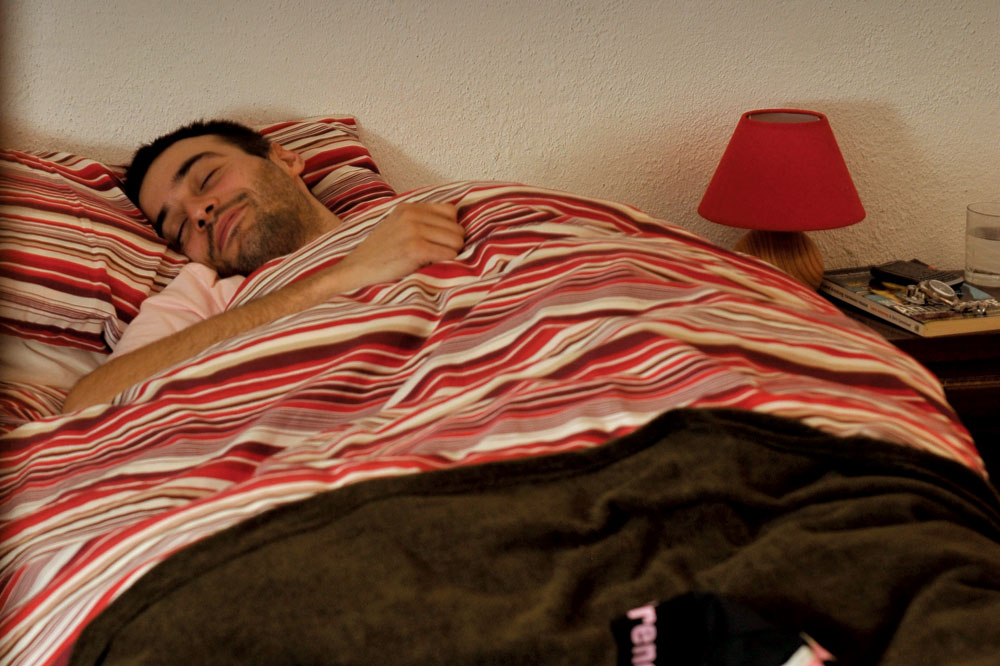Rise early, train easy
At what time of day is it best to train? Well it could be down to your circadian rhythm, Andrew Hamilton explains...

It’s long been known that biological rhythms can affect physical performance, and without doubt the most influential rhythm of all is the circadian rhythm.
This is your body’s daily wake/sleep rhythm, regulated by the secretion of a hormone called melatonin, which also affects body temperature, mental alertness and reaction times.
The highest levels of melatonin tend to occur in the middle of the night, resulting in sleepiness and reduced body core temperature, while the lowest typically occur during the late afternoon/early evening period, which is when most people feel at their best.
The prevailing wisdom, therefore, is that by scheduling your training to coincide with your ‘circadian peak’ (i.e. late afternoon/early evening), you will not only feel and perform better, but your higher core temperature will also reduce the risk of injury.
However, a new study on South African cyclists suggests that this ‘one size fits all’ approach could be misguided as some people might be genetically programmed to perform better in the morning.
The science
In the study, the researchers gathered together a group of 20 trained cyclists who carried the Period 3 long gene. Studies have shown that people who carry this gene typically report feeling and performing better early in the morning and, by contrast, start to flag come early evening.
The cyclists were fairly fit and riding around 170km per week. On five separate occasions, they were asked to complete a 17-min sub-maximal cycling test at 60 per cent (moderate intensity), 80 per cent (hard) and 90 per cent (very hard) of maximum heart rate at 6am, 10am, 2pm, 6pm and 10pm.
The latest race content, interviews, features, reviews and expert buying guides, direct to your inbox!
The order of these test times was random, and ample recovery between tests was allowed to ensure that the cyclists were completely fresh at the start of each session.
During each test, the cyclists were asked to rate their perceived effort levels (rating of perceived exertion), even though the actual effort level was identical in each of five tests.
The results showed that, compared to the morning and daytime sessions, in the two evening sessions (6pm and 10pm) the cyclists reported significantly higher ratings of perceived exertion at all three intensity levels, yet their absolute power output, speed and pedalling cadence showed no time-of-day differences.
In short, these ‘morning’ cyclists perceived exactly the same relative intensity workload to be harder in the evening compared to the morning.
J Sports Sci. 2014 Jan 30. [Epub ahead of print]
The bigger picture
Until recently, the evidence suggested that, given a choice, sportsmen and women should train and/or compete later in the afternoon or early evening because the ebb and flow of the circadian rhythm would ensure better performance.
For example, a study on high-intensity cycling ergometer performance found that the total work performed was 9.6 per cent greater in the afternoon compared to the morning (1).
Another looked at cycling sprinting power at four-hourly intervals from 2am to 10pm and found that maximum and average peak power occurred around 5.30pm to 6pm, just before the peak in the cyclists’ core temperatures, confirming that this was a circadian rhythm effect (2).
But this new study suggests that, for a certain subset of cyclists, morning training may be better because the same workload will feel more comfortable than when performed later in the day.
Applying the science
If you’re naturally a very early riser (lark), you may prefer to train early in the day because the same training intensity will simply feel easier. How do you know whether you’re a lark? You could of course take a genetic test but there are other traits that can be very informative:
- You wake very early naturally and begin to feel tired early in the evening
- You find staying up late for a special occasion quite difficult
- You feel hungry immediately after rising and tend to eat less in the evening.
In short, while many people perform best later in the day, if you’re convinced that you’re a morning person, you’re probably not imagining it, so unless you have to, don’t force yourself to train later in the day.
1. Can J Sport Sci. 1992 Dec;17(4):316-9
2. Int J Sports Med. 2004 Jan; 25(1):14-9
Founded in 1891, Cycling Weekly and its team of expert journalists brings cyclists in-depth reviews, extensive coverage of both professional and domestic racing, as well as fitness advice and 'brew a cuppa and put your feet up' features. Cycling Weekly serves its audience across a range of platforms, from good old-fashioned print to online journalism, and video.